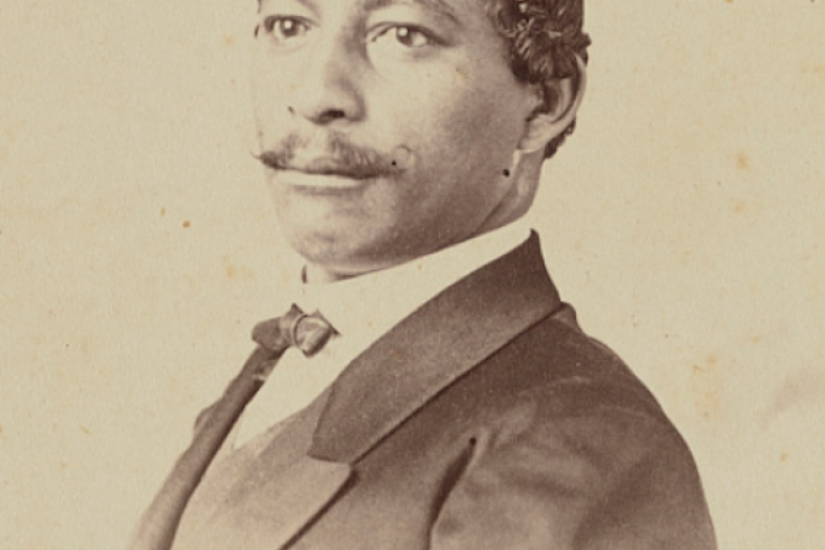In July 1863, months after Abraham Lincoln issued the Emancipation Proclamation, a young African-American man from Illinois boarded a small ship in New York City and headed for Belize City, in what was then British Honduras. John Willis Menard, a college-educated political activist born to free parents of French Creole descent, made his Central American journey as a representative of Lincoln’s. His goal: to determine whether British Honduras was a suitable location for previously enslaved Americans to relocate.
Menard’s trip to Central America was undoubtedly an unusual period in his early political career—one that never came to fruition—but it set the stage for decades of internationalism. Wherever he moved and whatever position he held, Menard repeatedly considered African-American liberation in the context of the New World’s dependence on the work of enslaved laborers.
That work, and Menard’s brief foray into the world of legislation, is part of what makes his appearance in a newly digitized photo album so remarkable. The album, acquired by the Library of Congress and Smithsonian’s National Museum of African-American History and Culture last year, features rare portraits of dozens of other abolitionists of the 1860s, including Harriet Tubman and only known photo of Menard (shown above). While those photos offer unique insight into the community of abolitionists fighting for a better future for African-Americans, what they don’t show is the controversy that sometimes surrounded that debate.
Before the American Civil War came to its bloody end, both Lincoln and the growing community of free black Americans were looking ahead to a United States without slavery. There were around 4 million enslaved people in the United States in 1860, comprising 13 percent of the American population. What would happen when all of them were freed?
“A number of African-American leaders saw colonization to Central America, to Mexico, or to Africa as the only viable solution prior to the Civil War,” says historian Paul Ortiz, author of Emancipation Betrayed: The Hidden History of Black Organizing and White Violence in Florida from Reconstruction to the Bloody Election of 1920.
For more than a year, President Lincoln had publicly expressed his support for the colonization efforts of emancipated African-Americans. He’d had discussions about colonization with representatives from the government of Liberia, as well as members of the Cabinet. He even espoused his views on colonization to leading members of the African-American community.
